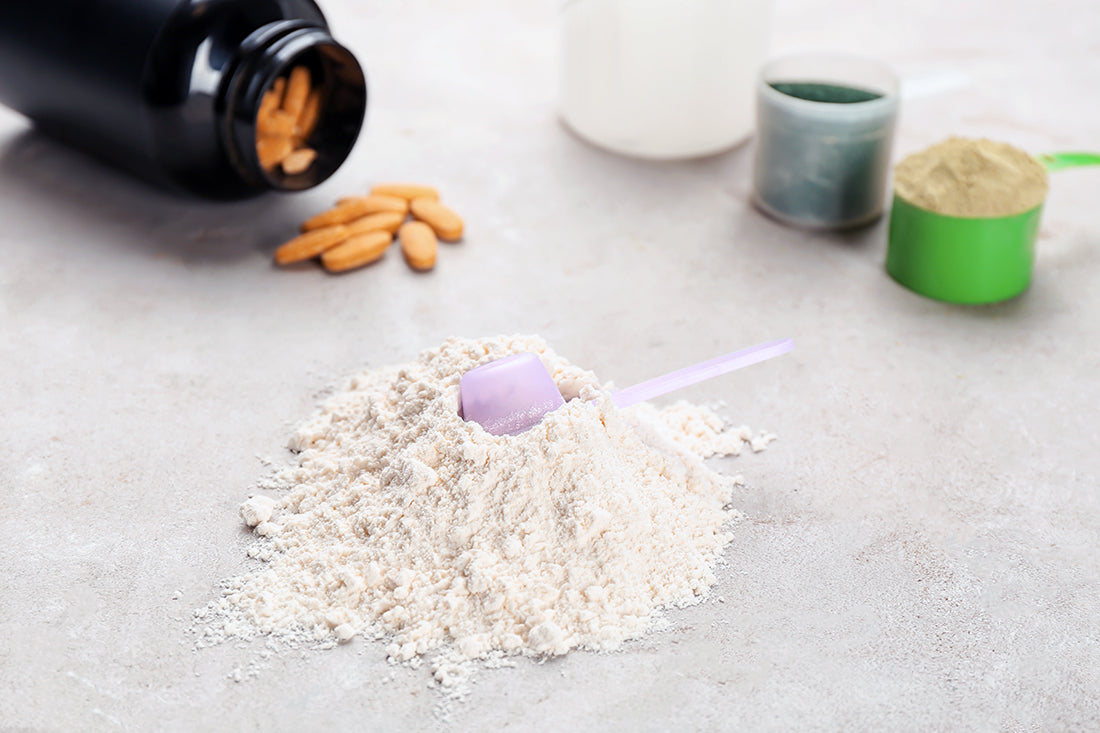Fiber supplements are a popular way to support digestion and regularity. Whether it is for gut comfort or to meet your daily fiber needs, many people turn to powders, capsules, or even gummies. But here is a question worth asking: can your fiber supplement actually block your body from absorbing important nutrients? While fiber is important, the type and amount you take can matter more than you might think. Let us take a closer look at how certain fiber types work, how they interact with nutrients, and what you should consider before choosing your supplement.
What is fiber and why does it matter?
Fiber is a type of carbohydrate found in plant-based foods that your body cannot digest fully. It passes through your system and plays an important role in supporting digestion. There are two main types:
- Soluble fiber: dissolves in water and forms a gel-like substance in the gut. It is found in foods like oats, barley, and apples.
- Insoluble fiber: does not dissolve in water and adds bulk to stool. It is found in whole grains, vegetables, and nuts.
Both types are helpful, but when it comes to nutrient absorption, soluble fiber deserves more attention.
How can fiber affect nutrient absorption?
Soluble fiber slows down the movement of food in the small intestine. This slower transit time can help the body take its time breaking down food, but in some cases, certain types of fiber can bind to minerals like calcium, iron, zinc, and magnesium. This may affect how much of these nutrients are absorbed.
Some insoluble fibers, especially when taken in high amounts, may speed up digestion too much, not giving the body enough time to absorb everything properly. That is why understanding the type and source of your fiber supplement is important.
What types of fiber supplements are available?
Fiber supplements come in many forms—powders, capsules, chewables, and more. Here are some common sources:
- Psyllium husk (soluble and insoluble)
- Inulin (soluble and fermentable)
- Methylcellulose (synthetic, soluble)
- Partially hydrolyzed guar gum (PHGG) – (Soluble)
Not all fibers work the same way. Some dissolve easily in water and are fermented slowly in the gut, helping maintain a balance between digestive comfort and nutrient absorption.
What are fermentable and non-fermentable fibers?
Fermentable fibers, such as PHGG, are broken down by gut bacteria into short-chain fatty acids (SCFAs). These SCFAs support gut lining health and may help ease digestion discomforts. They do not cause the same kind of blocking or binding effect on nutrients as some other fibers might.
On the other hand, non-fermentable fibers can stay longer in the gut and may carry minerals out of the body if taken in high amounts or combined with a poor diet.
How is Sandhu’s Sunfiber different?
Sandhu’s Sunfiber® supplement is made using partially hydrolyzed guar gum (PHGG). It is a soluble dietary fiber that dissolves easily in water and is unflavored, making it simple to add to your daily routine. Unlike some heavy fibers that swell or bulk up too much, PHGG is gentle on the gut and does not block nutrient pathways in the small intestine.
It is also fermentable, which helps the gut maintain balance over time. You get the fiber support without worrying about it affecting how your body uses other supplements or nutrients from food.
If you are thinking about adding a dietary fiber supplement, ask yourself:
- Do you already eat enough fiber-rich foods like vegetables, fruits, legumes, and whole grains?
- Is your fiber supplement soluble, dissolves in water, and easy to digest?
- Does it contain any synthetic ingredients or hard-to-digest compounds?
- Are you taking other supplements like iron, calcium, or zinc that might be affected?
It is always best to space out fiber intake from other supplements by a couple of hours, just to be safe. Drinking enough water is also key to helping the fiber move through your system properly.
Conclusion:
Fiber is an important part of a balanced diet, but not all fiber supplements are created equal. While some can unintentionally block or slow down nutrient absorption, others like Sandhu’s Sunfiber® supplement are designed to support gut health without disrupting your nutrient intake. Choosing the right type of fiber—one that dissolves easily and is gentle on the gut—can make a big difference.
If you are considering a fiber supplement, take a moment to check the label, understand the fiber source, and think about your overall diet. With the right kind of support, you can help maintain a healthy gut and feel better in your day-to-day routine—without missing out on the nutrients your body needs.






